See livestream, site, OpenAI thread, Nat McAleese thread.
OpenAI announced (but isn't yet releasing) o3 and o3-mini (skipping o2 because of telecom company O2's trademark). "We plan to deploy these models early next year." "o3 is powered by further scaling up RL beyond o1"; I don't know whether it's a new base model.
o3 gets 25% on FrontierMath, smashing the previous SoTA. (These are really hard math problems.[1]) Wow. (The dark blue bar, about 7%, is presumably one-attempt and most comparable to the old SoTA; unfortunately OpenAI didn't say what the light blue bar is, but I think it doesn't really matter and the 25% is for real.[2])
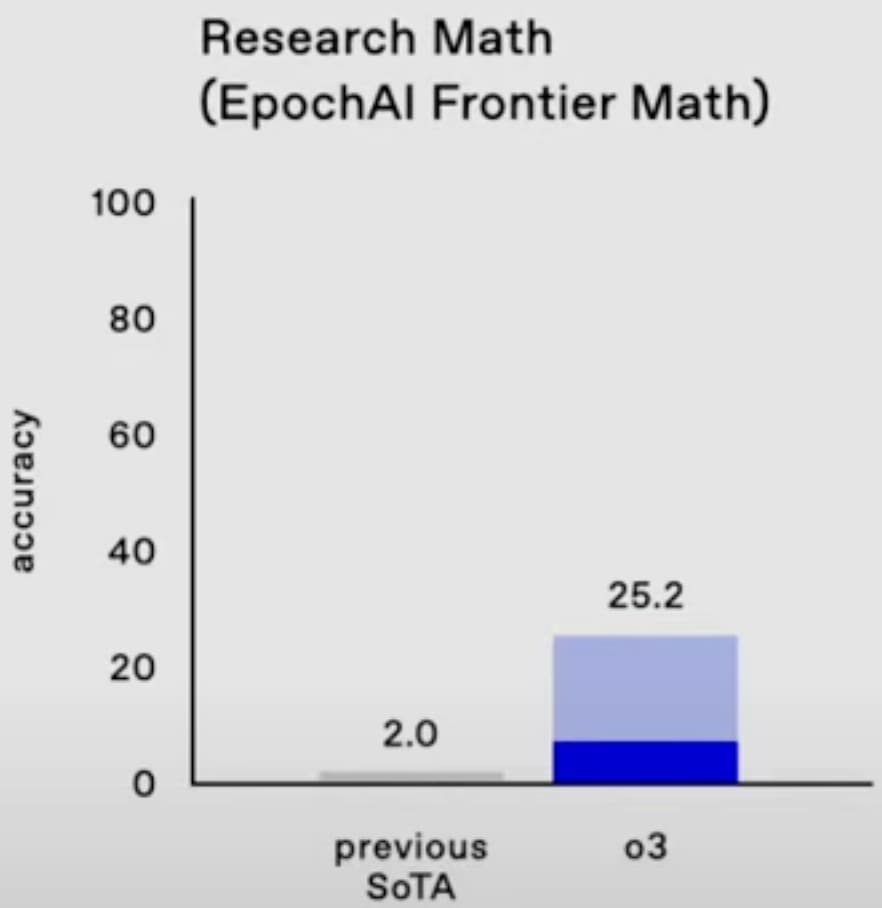
o3 also is easily SoTA on SWE-bench Verified and Codeforces.
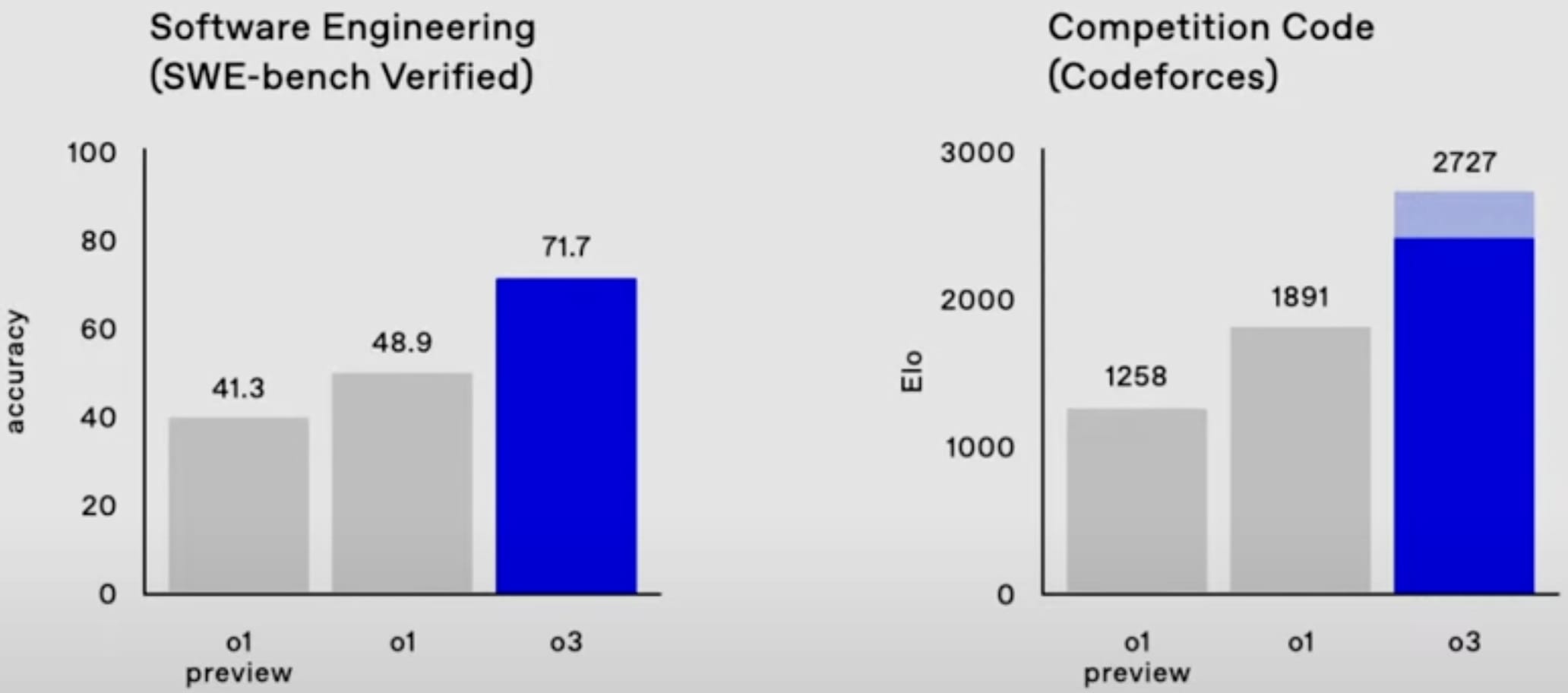
It's also easily SoTA on ARC-AGI, after doing RL on the public ARC-AGI problems[3] + when spending $4,000 per task on inference (!).[4] (And at less inference cost.)
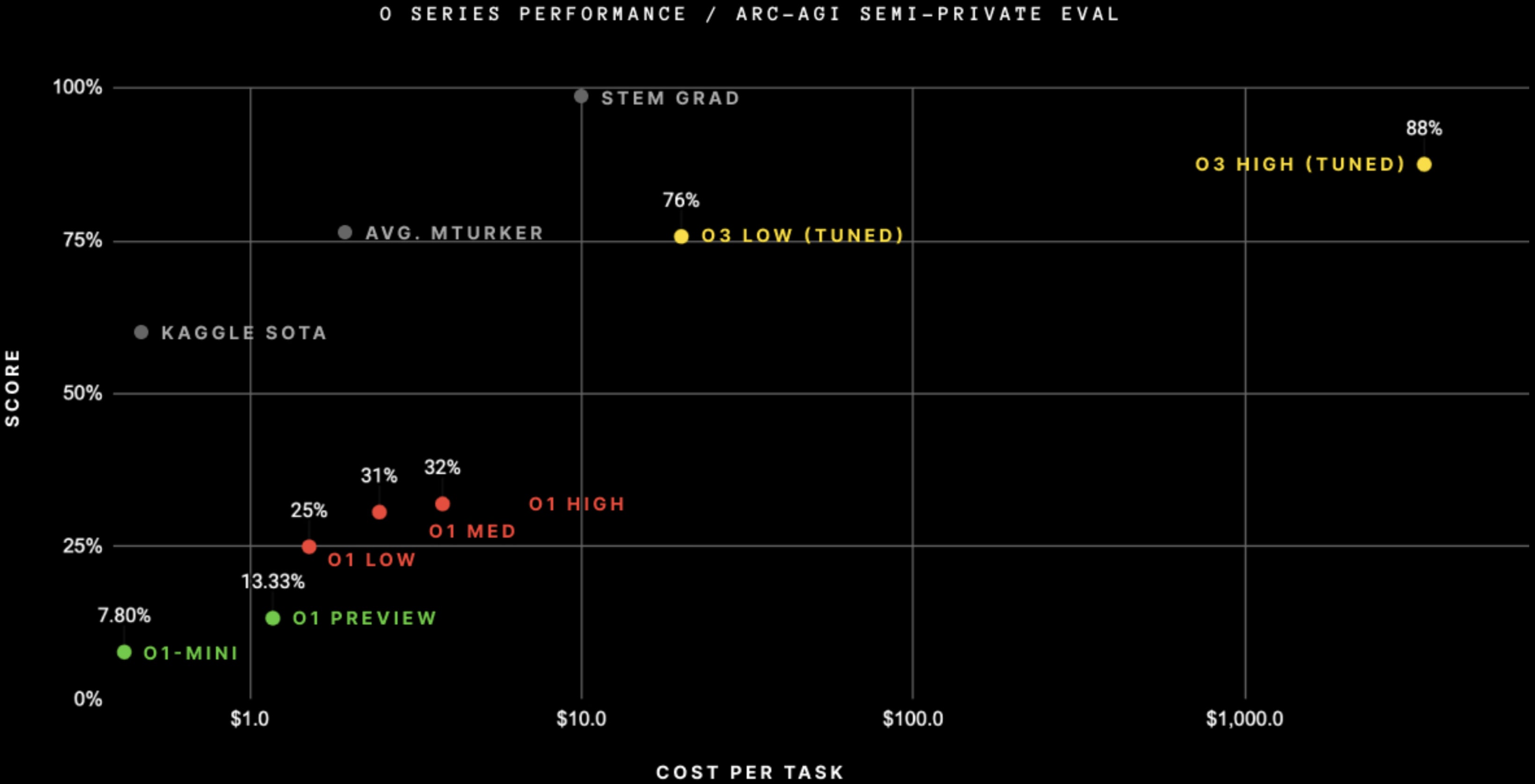
ARC Prize says:
At OpenAI's direction, we tested at two levels of compute with variable sample sizes: 6 (high-efficiency) and 1024 (low-efficiency, 172x compute).
OpenAI has a "new alignment strategy." (Just about the "modern LLMs still comply with malicious prompts, overrefuse benign queries, and fall victim to jailbreak attacks" problem.) It looks like RLAIF/Constitutional AI. See Lawrence Chan's thread.[5]
OpenAI says "We're offering safety and security researchers early access to our next frontier models"; yay.
o3-mini will be able to use a low, medium, or high amount of inference compute, depending on the task and the user's preferences. o3-mini (medium) outperforms o1 (at least on Codeforces and the 2024 AIME) with less inference cost.

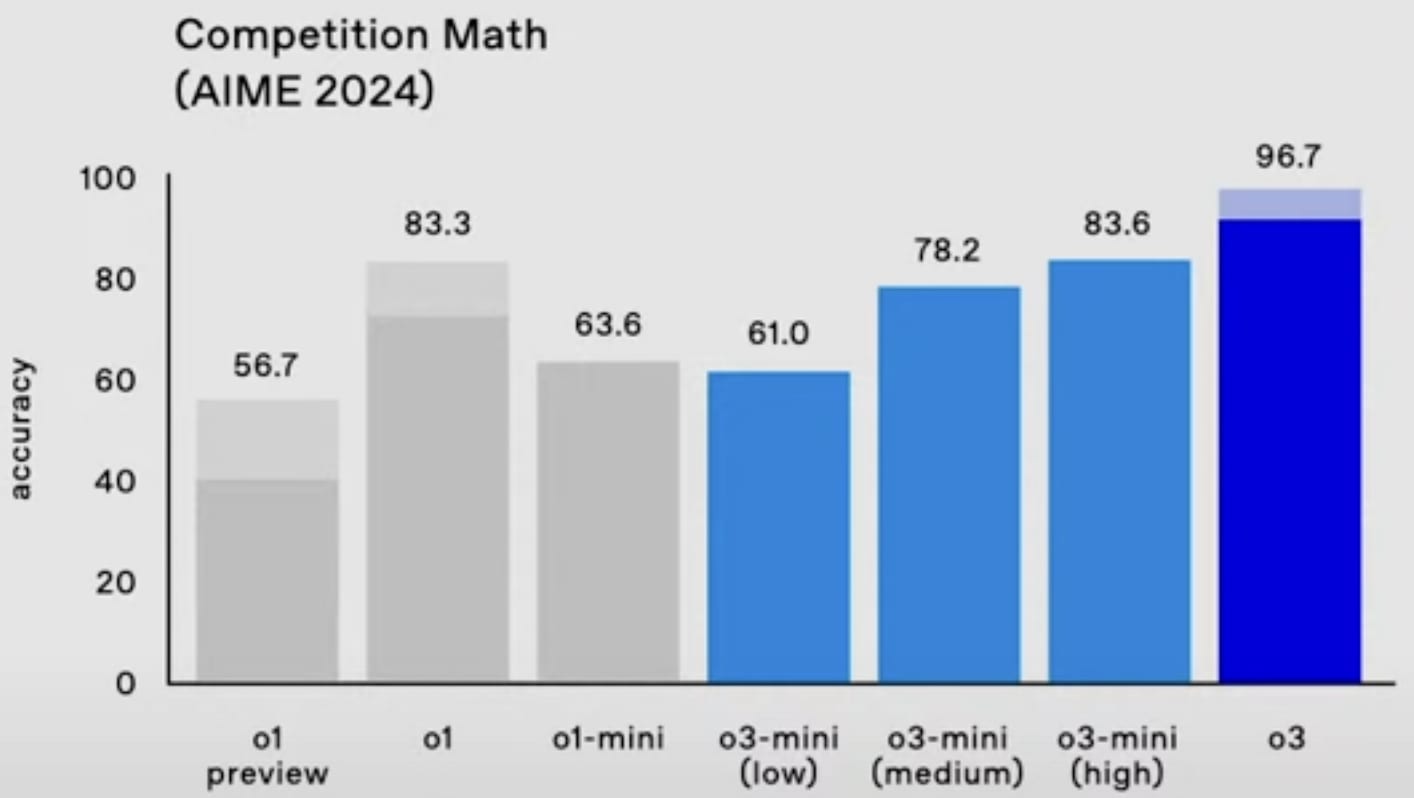
GPQA Diamond:
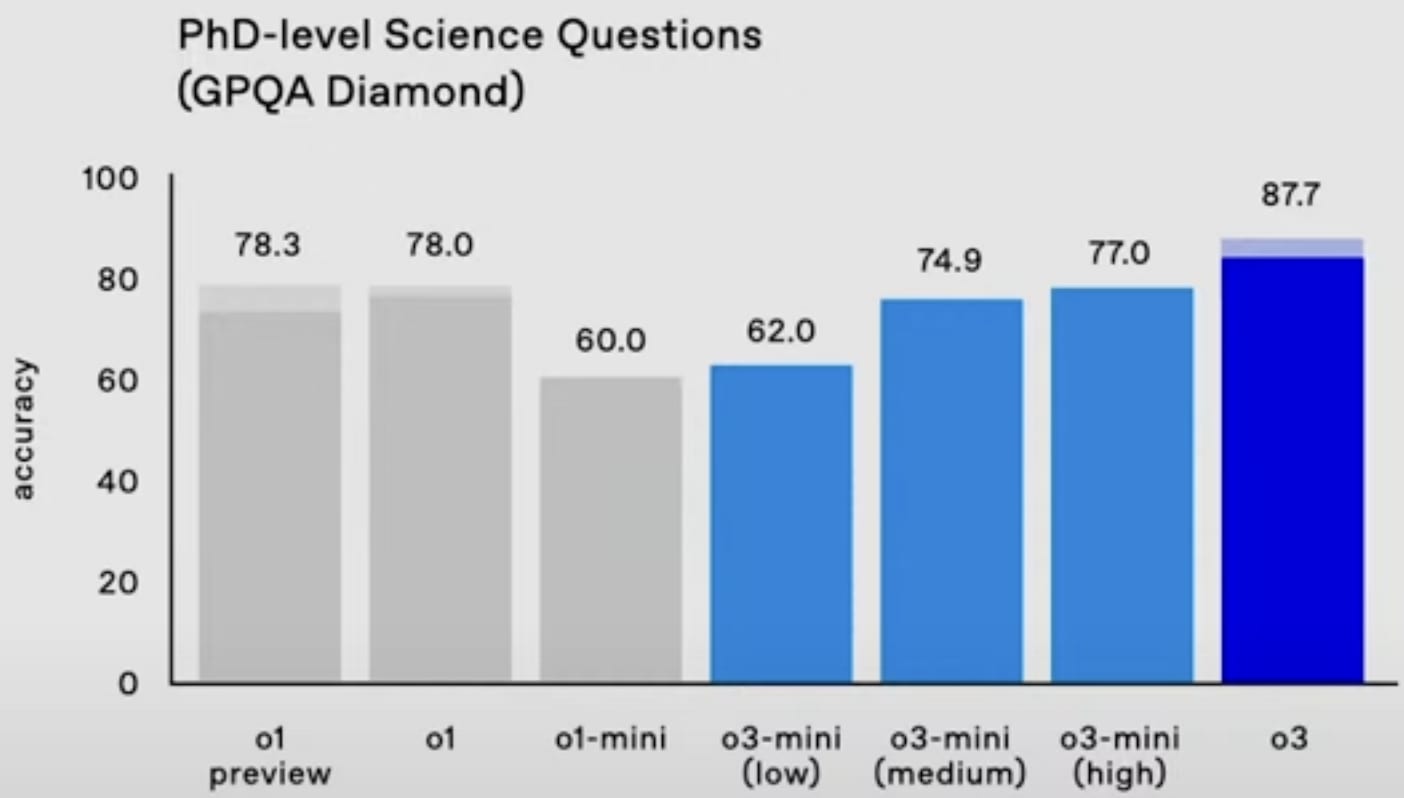
- ^
Update: most of them are not as hard as I thought:
There are 3 tiers of difficulty within FrontierMath: 25% T1 = IMO/undergrad style problems, 50% T2 = grad/qualifying exam style [problems], 25% T3 = early researcher problems.
- ^
My guess is it's consensus@128 or something (i.e. write 128 answers and submit the most common one). Even if it's pass@n (i.e. submit n tries) rather than consensus@n, that's likely reasonable because I heard FrontierMath is designed to have easier-to-verify numerical-ish answers.
Update: it's not pass@n.
- ^
Correction: no RL! See comment.
Correction to correction: nevermind, I'm confused.
- ^
It's not clear how they can leverage so much inference compute; they must be doing more than consensus@n. See Vladimir_Nesov's comment.
- ^
Update: see also disagreement from one of the authors.

The ARC performance is a huge update for me.
I've previously found Francois Chollet's arguments that LLMs are unlikely to scale to AGI pretty convincing. Mainly because he had created an until-now unbeaten benchmark to back those arguments up.
But reading his linked write-up, he describes this as "not merely an incremental improvement, but a genuine breakthrough". He does not admit he was wrong, but instead paints o3 as something fundamentally different to previous LLM-based AIs, which for the purpose of assessing the significance of o3, amounts to the same thing!
It might be fair to say that the o3 improvements are something fundamentally different to simple scaling, and that Chollet is still correct in his 'LLMs will not simply scale to AGI' prediction. I didn't mean in my comment to suggest he was wrong about that.
I could imagine someone criticizing him for exaggerating how far away we were from coming up with the necessary new ideas, given the o3 results, but I'm not so interested in the debate about exactly how right or wrong the predictions of this one person were.
The interesting thing for me is: whether he wa... (read more)